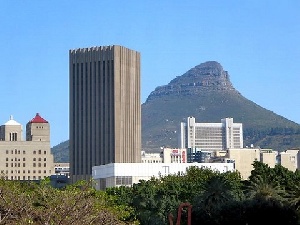The latest global survey from PricewaterhouseCoopers on economic crime has found that it is more prevalent in South Africa than anywhere else in the world. Economic crimes reached their highest levels in South Africa during the last decade, according to PwC's Global Economic Crime Survey 2018 . More than three quarters (77%) of all organisations in South Africa have been subjected to some form of economic crime.
According to the report, half of the top ten nations most affected by economic crime are in Africa. Kenya is the second-worst affected nation for economic crime, with 75% of organisations experiencing fraud and other economic crimes, followed by France (71%) and Russia. Awareness of the threat of economic crime was considerably higher in South Africa than the global average, with 70% of respondents in South Africa having high or extensive knowledge of the types of economic crime they could encounter.
More than a quarter (26%) of South African respondents believe that cybercrime will be the most disruptive type of economic crime for organisations in the next two years. Whether it’s e-commerce businesses or those who day trade in South Africa online in the Top 40 index or in currency pairs against the Euro, Pound or Dollar, it’s more important than ever that organisations and individuals are protected against the threat of phishing attacks . Cybercriminals are increasingly using malicious emails and malware-infected pop-ups and landing pages to gain direct access to individuals’ sensitive data, such as credentials and personal details.
On a global scale, the report revealed the highest levels of recorded fraud and economic crime since the survey’s first publication in 2001. Trevor White, South Africa Global Economic Crime and Fraud Survey Leader at PwC, believes the increasing reports of economic crime are actually good news, driven by “a heightened state of fraud awareness by respondents, and in this lies the silver lining”.
Mr White admits that despite South Africa’s worrying reported economic crime rates – some 28% higher than the global average – the raised awareness of the issues and challenges organisations and individuals face in the battle against 21st century fraud and other economic crimes can only be a positive thing.
The most common form of economic crime reported in South Africa today is asset misappropriation, which equates to almost half (49%) all crimes. Fraud "committed by the consumer" is the second most reported crime in South Africa at 42%. More than a third (35%) of the 282 South African-based respondents to the PwC survey admitted to losing over R1.2m ($100,000) to economic crime. One per cent admitted to losing more than R1.2bn ($100,000,000).
Subsequently, 44% of respondents confirmed they are investing heavily in fighting economic crime of all types, particularly fraud, with almost half (46%) anticipating ramping up their spending during the next two years.
Mr White is pleased to see organisations worldwide “beginning to shed their denial complex” about the threat of economic crime with “the accountability for fraud and economic crime” moving “into the executive suite”. Businesses and individuals are taking responsibility for learning how to identify and address fraud attacks offline and online.
Business News of Wednesday, 28 February 2018
Source: Nick Robinson

















